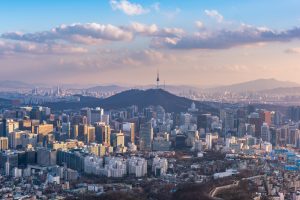This year marks the 60th anniversary of the 1963 recruitment agreement between the Federal Republic of Germany (then West Germany) and the Republic of Korea (South Korea). Under this agreement, Korean miners came to Germany as temporary labor migrants or Gastarbeiter. In addition to the recruitment of miners, Korean nurses came to Germany through private and para-state initiatives.
Exact figures are not available, but it is estimated that between the start of recruitment in the late 1950s and the end of recruitment activities in the mid-1970s, a total of about 20,000 Koreans came to Germany.
The migrant worker agreement was closely tied to South Korea’s later economic rise. Often called a “miracle,” but meticulously planned under the autocratic rule of President Park Chung-hee, the Korean economic boom depended on attracting an influx of foreign capital. To this end, Park made a trip to West Germany in 1964 to obtain loans. In this context, he offered the wages of guest workers as collateral for the repayment of these loans.
Besides serving as collateral for foreign loans, sending Korean workers abroad had three functions in the context of Park’s development strategy. It improved relations with the countries at the receiving end; the posted workers sent money back to their families in South Korea; and it eased the pressure on the domestic labor market. In particular, these remittances from abroad had a direct positive impact on South Korea’s GDP by increasing the disposable income of South Korean households and bringing foreign currency into the country.
Sending labor abroad was an essential part of the Park government’s economic development strategy. Particularly significant are the more than 1 million Koreans who worked throughout the Arab world. From the 1980s onwards, in the context of South Korea’s rising level of economic development, the deployment of labor began to be phased out. The Federal Republic of Germany had already stopped its recruitment in the mid-1970s in the context of the first oil crisis.
Today, South Korea is a developed industrialized country that itself relies on migrant workers from countries including China, Vietnam, the Philippines, and Thailand to maintain its own prosperity. In the context of the intensifying debate about the conditions under which these migrant workers live and work in South Korea, it is appropriate to look at the experiences of Korean labor migrants in Germany.
The decision of Korean workers to relocate to Germany stemmed from a desire to improve their living conditions and support their families through remittances. Additionally, the prospect of further education and personal development in a more liberal country may also have influenced their individual decisions. However, the reality that awaited these workers was far from ideal. They found themselves relegated to menial tasks, regardless of their qualifications. German employers provided minimal training and support in language and cultural integration, leaving the Koreans to navigate their new environment independently.
Furthermore, German public opinion toward Koreans was marred by racism, sexism, and exoticization. These biases were particularly evident in media coverage of approximately 11,000 Korean female nurses who arrived in Germany from the 1950s onwards. Korean women were both idealized in the press, conforming to patriarchal ideals with their submissive appearance, and subjected to discussions of exotic desirability, resulting in a mixture of admiration and objectification.
The exact number of Koreans who decided to stay in Germany after their contracts ended is unclear. Nonetheless, approximately 50,000 individuals with Korean roots now constitute one of the world’s largest Korean diasporas in Germany.
Presently, the perception of this minority in Germany is largely positive but lacks critical examination. Koreans are often labeled as “silent model migrants,” a description that overlooks the racism they have faced. Yet the German public has put its past treatment of labor migrants under scrutiny starting in the 1970s.
In a parallel reminiscent of Germany in the 1960s, South Korea finds itself as a wealthy, industrialized nation grappling with a labor shortage. To maintain its current prosperity, it, too, has become increasingly reliant on labor migration. Recent estimates suggest that there are well over 1 million foreign workers in the country today, a number expected to surge given South Korea’s declining fertility rate.
However, as the reliance on foreign labor intensifies, South Korea faces mounting criticism for its treatment of these workers. Reports reveal that foreign workers must work longer hours and earn lower wages than Korean natives. In addition, they are often denied the right to organize. Shockingly, instances of verbal and physical abuse within workplaces have also been documented.
These allegations bear a striking resemblance to the treatment of labor migrants in Germany, a reality that came under scrutiny and sparked a nationwide public debate. South Korea, with its own history of citizens seeking opportunities abroad, must reflect on these parallels and reconsider its treatment of foreign workers.

































